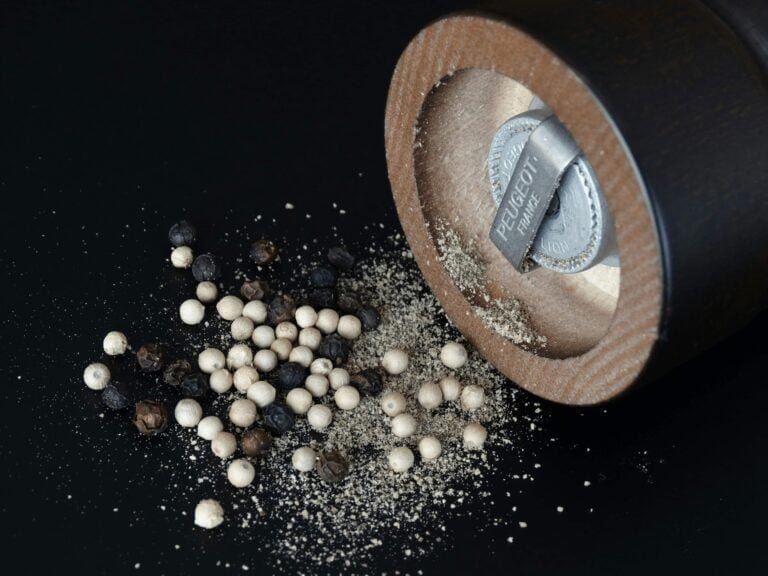The Mediterranean Diet is a way of eating that’s been around for thousands of years and has been proven to have many health benefits. It’s based on the traditional diets of people living in Greece, Italy, France and Spain–countries that border the Mediterranean Sea.
The Mediterranean Diet emphasizes fresh fruits and vegetables; whole grains; beans; nuts; seeds; olive oil as the main source of fat (in place of butter or margarine); limited amounts of poultry or fish with little red meat–and no processed foods or added sugars.
The Modified Mediterranean Diet for Weight Loss
The Mediterranean diet has long been touted as a healthy way of eating, with numerous studies showing its benefits for reducing the risk of chronic diseases such as heart disease, cancer, and diabetes. But did you know that the Mediterranean diet can also be modified to help with weight loss?
Research has shown that following a modified Mediterranean diet can lead to significant weight loss and improved health markers. So, what exactly is the modified Mediterranean diet and how can you follow it?
What is the Modified Mediterranean Diet?
The modified Mediterranean diet is a variation of the traditional Mediterranean diet that focuses on weight loss while still incorporating the key principles of the Mediterranean diet. It emphasizes whole, unprocessed foods such as fruits, vegetables, whole grains, nuts, seeds, legumes, and lean protein sources such as fish and poultry.
However, the modified Mediterranean diet also limits the intake of certain high-calorie foods such as red meat, full-fat dairy products, and refined carbohydrates such as white bread and pasta. Instead, it encourages the use of healthier alternatives such as whole-grain bread and pasta, low-fat dairy products, and lean protein sources.
How to Follow the Modified Mediterranean Diet for Weight Loss
If you’re interested in trying the modified Mediterranean diet for weight loss, here are some tips to get started:
- Emphasize plant-based foods: Aim to fill at least half of your plate with fruits and vegetables at every meal. These foods are high in fiber, which can help you feel full and satisfied, while also providing essential nutrients.
- Choose healthy fats: While the Mediterranean diet is known for its high intake of healthy fats such as olive oil and nuts, it’s important to watch your portion sizes if weight loss is your goal. Aim for one to two tablespoons of olive oil per meal, and limit your nut intake to a small handful per day.
- Limit high-calorie foods: As mentioned earlier, the modified Mediterranean diet limits the intake of high-calorie foods such as red meat, full-fat dairy products, and refined carbohydrates. Instead, choose lean protein sources such as fish and poultry, and opt for healthier carbohydrate sources such as whole-grain bread and pasta.
- Be mindful of portion sizes: While the Mediterranean diet is known for its emphasis on whole, unprocessed foods, it’s still important to watch your portion sizes if weight loss is your goal. Use smaller plates, measure out your portions, and pay attention to your hunger and fullness cues.
The modified Mediterranean diet can be a healthy and effective way to lose weight while still enjoying delicious, whole foods. By focusing on plant-based foods, healthy fats, and lean protein sources, while limiting high-calorie foods and watching your portion sizes, you can successfully follow the modified Mediterranean diet for weight loss. As always, be sure to consult with your healthcare provider before starting any new diet or exercise program.
The Power of Fermented Foods
Fermented foods have been an integral part of human diets for centuries. These foods undergo the process of fermentation, which is the breakdown of carbohydrates by bacteria, yeasts, or other microorganisms into simpler molecules. This process not only preserves the foods but also imparts unique flavors and textures. Fermented foods have numerous health benefits, and incorporating them into your modified Mediterranean diet can help you achieve your weight loss goals and improve your overall well-being.
The Benefits of Fermented Foods
- Improved Gut Health: Fermented foods are rich in probiotics, which are beneficial bacteria that help improve gut health. These probiotics help maintain a healthy balance of gut flora, which is essential for digestion, nutrient absorption, and a strong immune system.
- Boosted Immune Function: A healthy gut is linked to a strong immune system. The probiotics in fermented foods help support the growth of good bacteria in the gut, which in turn helps strengthen the immune system and protect against harmful pathogens.
- Enhanced Nutrient Absorption: Fermentation can increase the bioavailability of nutrients in foods, making them easier to digest and absorb. This means that your body can more effectively utilize the nutrients from fermented foods, leading to better overall health.
- Weight Loss Support: Some studies have shown that consuming probiotic-rich fermented foods may help with weight loss by improving gut health and reducing inflammation. Additionally, fermented foods can help you feel fuller for longer, reducing the likelihood of overeating.
Fermented Foods to Include in Your Modified Mediterranean Diet
Here are some popular fermented foods to consider incorporating into your modified Mediterranean diet:
- Yogurt: Rich in probiotics, yogurt can support gut health and aid in digestion. Choose plain, unsweetened yogurt to avoid added sugars and mix in fresh fruits, nuts, or seeds for added flavor and nutrients.
- Kefir: This fermented milk drink is similar to yogurt but has a thinner consistency, making it perfect for smoothies. Kefir is packed with probiotics and can help improve digestion and boost the immune system.
- Sauerkraut: Made from fermented cabbage, sauerkraut is rich in probiotics, fiber, and vitamins. Add it to salads, sandwiches, or as a side dish for a tangy, gut-healthy boost.
- Kimchi: This spicy, fermented Korean side dish is made from cabbage and other vegetables. Kimchi is rich in probiotics, vitamins, and antioxidants, making it a great addition to your diet.
- Tempeh: Made from fermented soybeans, tempeh is a protein-rich meat alternative that’s also a source of probiotics. Use tempeh in stir-fries, salads, or as a meat substitute in your favorite dishes.
Tips for Incorporating Fermented Foods into Your Diet
- Start slow: Introduce fermented foods gradually to allow your body to adjust to the increased levels of probiotics.
- Be adventurous: Try different fermented foods to find the ones you enjoy and can easily incorporate into your diet.
- Make your own: Many fermented foods can be made at home, such as yogurt, sauerkraut, or kimchi. This allows you to control the ingredients and customize the flavors to your liking.
Fermented foods are a powerful addition to your modified Mediterranean diet, offering numerous health benefits such as improved gut health, enhanced nutrient absorption, and weight loss support. By incorporating a variety of fermented foods into your diet, you can enjoy these benefits and enhance your overall well-being.
Exercise and the Mediterranean Diet
The modified Mediterranean diet is not just about what you eat, but also how you live your life. Exercise is an important component of a healthy lifestyle, and when combined with the Mediterranean diet, can provide numerous health benefits. In this section, we’ll explore the benefits of exercise, the types of exercise to focus on, and tips for incorporating exercise into your daily routine.
The Benefits of Exercise
Regular exercise has numerous health benefits, including:
- Improved Cardiovascular Health: Exercise can help strengthen the heart and reduce the risk of heart disease. It can also improve blood pressure and cholesterol levels.
- Weight Management: Exercise can help with weight loss and weight management by burning calories and building lean muscle mass.
- Reduced Inflammation: Chronic inflammation has been linked to numerous health conditions, including heart disease and cancer. Regular exercise can help reduce inflammation and improve overall health.
- Enhanced Mood: Exercise has been shown to improve mood and reduce symptoms of depression and anxiety.
Types of Exercise to Focus On
When it comes to exercise, it’s important to focus on both cardiovascular exercise and strength training. Cardiovascular exercise, such as running, cycling, or swimming, can help improve cardiovascular health and burn calories. Strength training, such as weightlifting or bodyweight exercises, can help build lean muscle mass and improve overall strength and endurance.
Tips for Incorporating Exercise into Your Daily Routine
Here are some tips for incorporating exercise into your daily routine:
- Start Slow: If you’re new to exercise, start slow and gradually increase the frequency and intensity of your workouts.
- Find an Activity You Enjoy: Exercise doesn’t have to be a chore. Find an activity you enjoy, such as dancing, hiking, or swimming, and make it a regular part of your routine.
- Make It Social: Exercise with a friend or join a group fitness class to make exercise a social activity and stay motivated.
- Set Realistic Goals: Set realistic goals for yourself and celebrate your progress along the way.
- Incorporate Exercise into Your Daily Routine: Take the stairs instead of the elevator, walk or bike to work, or take a walk during your lunch break to incorporate exercise into your daily routine.
Exercise is an important component of a healthy lifestyle, and when combined with the modified Mediterranean diet, can provide numerous health benefits. Focus on both cardiovascular exercise and strength training, find activities you enjoy, and incorporate exercise into your daily routine to improve your overall health and well-being.
Final thoughts on the Modified Mediterranean Diet as a Sustainable Weight Loss Solution
The modified Mediterranean diet is a sustainable and effective weight loss solution that has been shown to provide numerous health benefits. By focusing on whole, nutrient-dense foods, and incorporating healthy fats, lean proteins, and complex carbohydrates, the modified Mediterranean diet can help you lose weight, improve your overall health, and reduce the risk of chronic diseases.
Unlike many fad diets that restrict certain food groups or require extreme calorie restriction, the modified Mediterranean diet is a balanced and flexible approach to eating that can be easily incorporated into your lifestyle. It also allows for occasional indulgences, making it a more realistic and enjoyable way to lose weight and maintain a healthy lifestyle.
In addition to the dietary recommendations, the modified Mediterranean diet also emphasizes the importance of regular exercise, stress management, and social support. By adopting these lifestyle habits, you can experience even greater health benefits and improve your overall well-being.
While the modified Mediterranean diet may not be the right fit for everyone, it is a viable option for those looking for a sustainable and long-term approach to weight loss and improved health. As always, it’s important to consult with your healthcare provider before making any significant changes to your diet or lifestyle.
By making small, gradual changes to your eating habits and lifestyle, you can achieve your weight loss goals and improve your overall health and well-being. With the modified Mediterranean diet, you can enjoy delicious, wholesome foods while nourishing your body and mind for a healthier, happier life.
























